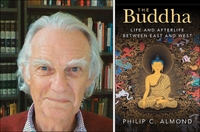Noah and the Flood in Western Thought
Philip C. Almond. Cambridge Univ, $44.99 (396p) ISBN 978-1-009-55722-1
Almond (The Buddha), a professor emeritus of religion at Queensland University, comprehensively chronicles more than two millennia of scholarship on the biblical story of the flood. Ancient and medieval interpreters saw it as a source of literal truth and, in the case of some Christian and Muslim thinkers, as a prototype for later religious figures and events (with several Christian commentators framing Noah as a Christlike regenerator of humanity). Towards the end of the 17th century, modernity brought a wave of religious and secular thinkers who used “new science” to scrutinize the narrative anew. For example, naturalist Carl Linnaeus, while unwilling to dismiss the account wholesale, questioned the plausibility of the sudden extinction of every animal species save a lucky pair of each. Others wondered about the provenance of “the vast amounts of water” in the flood, the means of its eventual dissipation, and how an ark could have accommodated what was then an ever-increasing number of recognized species. Stretching his survey to the present, Almond concludes with a trenchant discussion of the story’s relevance in a world that risks destruction from yet another “cataclysmic climate event” wrought by “human wrongdoing,” and urges readers to take responsibility for remaking the world (as did Noah, whom Almond calls the world’s first environmentalist). Rigorous yet accessible, this is a worthy reconsideration of an ancient story. (June)
Details
Reviewed on: 03/20/2025
Genre: Religion
Other - 1 pages - 978-1-009-55725-2


